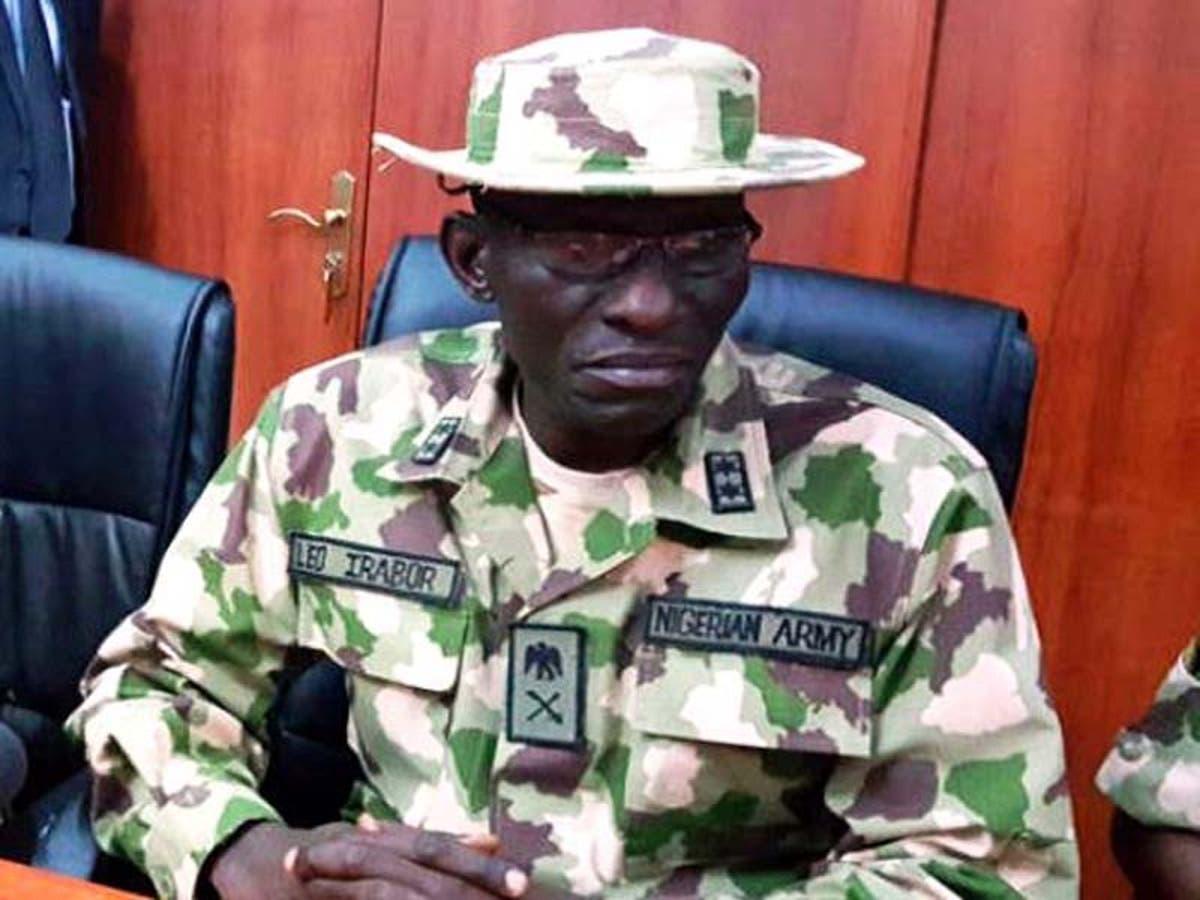
…Says it’s a threat to Corporate Existence/Security of Nigeria.
By Kingsley Omonobi
The Chief of Defence Staff, General Lucky Irabor has stated that there is need for the nation to guard its allocated radio frequency spectrum jealously with a view to checkmating interference and its illegal use by unauthorized persons and entities so as not to jeopardize the corporate existence and security of the country.
According to Gen Irabor, “Radio Frequency Spectrum is a very important national resource and like most resources, it is finite. It is the substance on which communication rides in its entirety. Consequently, radio frequency spectrum is directly proportional to communication as a whole, which is greatly vital to our corporate existence”.
Represented by Rear Admiral Mohammed Nagenu, the Chief of Defence Administration, the CDS made this disclosure at the opening of the ‘Armed Forces Frequency Management Workshop’ organized by the Defence headquarters in Abuja.
He said, “One of the key issues, particularly the illegal use of the Armed Forces and other security agencies allocated radio frequency spectrum, is lack of monitoring, which must be checkmated through effective capacity building by the agencies”.
“This is the purpose of the AFN radio frequency spectrum management workshop 2022, to build the capacity of personnel for effective monitoring and management of the radio frequency spectrum. Monitoring is a continuous activity and hence would require regular building of capacity to boost personnel turnover due to postings or separation from service”.
“It is important to state that this is not the first radio spectrum management workshop and it will not be the last hence, the workshop programme and lectures to be delivered for the week-long event have been tailored to fit the desired goals of positive overall management of Nigeria’s allocated radio frequency spectrum”, Gen Irabor added.
In address, Minister of Communications and Digital Economy, Dr. Isa Ali Pantami expressed happiness that the workshop is coming at a crucial time when the revival of our national economy is being pursued through the National Digital Economy Policy and Strategy (NDEPS) being anchored by the Ministry of Communications and Digital Economy
Speaking through the Director/Secretary of National Frequency Management Council, Engr. Abubakar Ladan, the minister said, “NDEPS has eight pillars based on which the foundation of the strategy is anchored. Although none of the pillars is directly linked to the frequency spectrum, nonetheless, the whole activities and programmes outlined to achieve the goals of the strategy are dependent on the rollout of ubiquitous and seamless telecom’s and ICT services”.
“To achieve these seamless services, there is no alternative to proper, effective and efficient use of the frequency spectrum that will guarantee harmonious coexistence of all services devoid of any harmful interference. This is exactly what spectrum management is all about”.
While noting that the NCC, the NBC and the Spectrum Management Department of the ministry as regulators of the industry, assign and regulate the operators in telecom’s, broadcasting and non-commercial users of the spectrum respectively, the minister said, “Therefore, these agencies have the responsibility to closely monitor their licensees for proper management of the spectrum allocated to them which they in turn assigned to their operators to ensure seamless operations and minimize harmful interference”.
“Military and other security services spectrum fall under the purview of the spectrum management department of the ministry. Suffice it therefore to say that, this workshop is not just an event of the military, ministry of communication and digital economy as the custodian of the national frequency spectrum, is equally a major stakeholder. I therefore congratulate and appreciate the Chief of Defence Staff and the Nigerian Armed Forces for coming up with this workshop at this stage of our national development”.
“The workshop could not have come at a better time than now, when we are in dire need of digitalizing all government operations for improved accountability transparency and efficiency in service delivery as enshrined in the ‘E-Government Master Plan’ already approved by the Federal Executive Council”, he said.
Emphasizing that all these cannot be achieved without an orderly and secure communications environment, he said, “To create this dream environment, there must be effective management of the communication index; and that is the frequency spectrum. Therefore, the relevance of this workshop whose main objective is to sensitize relevant stakeholders to the above imperatives cannot be overemphasized”.
In his welcome remarks, the Chief of Defence Communications, Major Gen Elvis Njoku explained that the workshop is a bold step towards a better and more efficient utilization and management of radio frequency spectrum adding, “It is aimed at creating opportunities for the cross fertilization of ideas and knowledge on the latest developments and technologies in frequency spectrum management.
He said, “Management of radio frequency spectrum has become quite a problem in Nigeria, considering the increased number of radio broadcast companies and the incessant interference experienced by radio operators on military frequencies owing to the illegal/unauthorized use of such frequencies.
“These are anomalies which are considered to be as a result of inadequate monitoring and management of Nigeria’s allocated radio frequency spectrum. This workshop is one of the efforts of the Defence Headquarters to check the anomalies observed in the utilization and management of the radio frequency spectrum.
“The AFN Radio Frequency Management Workshop 2022 is aimed at bringing personnel of the Nigerian Armed Forces and other Security Agencies as well as Departments and Agencies concerned with the administration, monitoring and management of the radio frequency spectrum together.
“It would not only educate participants on the fine points of frequency management but would foster unity among participants and increase collaboration with National Frequency Management Council for effective management of the Nigerian radio frequency spectrum. It will promote the understanding of wireless communication as a component of land, sea and air power as well as its application to contending with insurgency.”
Disclaimer
Comments expressed here do not reflect the opinions of Vanguard newspapers or any employee thereof.